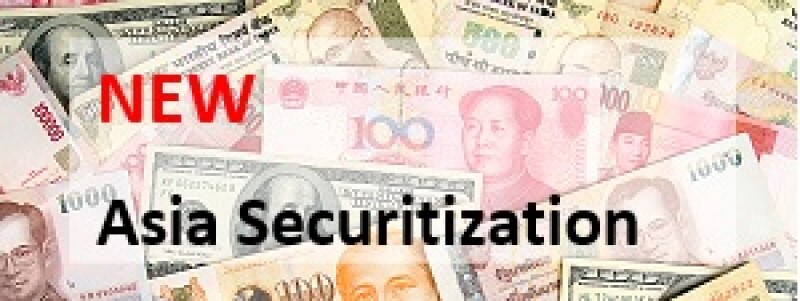The Bavarian Sky China 2015-2 came with four tranches — a Rmb1.96bn fixed rate A1 tranche, an A2 Rmb980m floating rate note portion, a Rmb280m FRN B tranche, and a Rmb280m subordinated piece.
Lead underwriter Citic Securities and joint lead underwriter HSBC marketed the A1 at a range of 2.9%-3.9% , while the floaters were pitched at 1.7%-2.7% and 2.4%-3.4% respectively over the one year People’s Bank of China deposit rate.
The deal was very well received by investors, according to a source close to the deal, which enabled final pricing to come close to the tighter end of guidance for all three portions. Pricing was eventually fixed at 3.31% over for A1, 1.99% for A2 and 2.5% for B.
While pricing was not at the tightest level of the initial marketed range, it was still a great result as BMW managed to nab the lowest coupons ever seen in China Auto ABS — a record that was held by its own Bavarian Sky China 2015-1 issued in June.
In addition, the originator was able to achieve such an aggressive pricing for a much bigger deal. The latest Rmb3.5bn trade is close to 40% larger than the Rmb2.57bn it raised five months ago.
“The transaction was very well done. It got a bigger deal done at an even tighter pricing, which shows both BMW’s growing status among the investor base and also the onshore ABS market’s increasing familiarity with international names,” the source added.
Innovative structure
This structure was first introduced to the China auto ABS sector by the Bavarian Sky China 2015-1 transaction. The rationale for that was to draw the attention of domestic money market funds, which are only able to put their money in fixed rate maturities of 397 days.
“Structurally, this was a repeat of the older deal. But we got an even better response this time around because some accounts needed time to get familiar with the new structure,” the source said. “Now that it’s proven that the structure works, many who sat out [in the last deal] came in.”

While those away from the deal agreed that the structure has opened up the auto ABS sector to money market funds, one structured finance specialist had a simpler explanation for the strong demand.
“The market has been undersupplied,” he said. “We were expecting more deals this year, but because of one event or another, it wasn’t as busy as predicted. And since international names are even rarer onshore, they get gobbled up quickly.”
The strong demand was key for BMW to achieve tight pricing although the series of rate cuts China has undertaken this year also helped its case.
China has reduced its benchmark rates six times over the past year, three of which came after Bavarian Sky China 2015-1.
Bigger role
While international banks were previously seen in domestic deals, they were either just a part of a sub-underwriting group or as financial advisers. Bavarian Sky China 2015-2 marks the first time an international bank has been elevated to a senior underwriting role.
“It’s a reflection of how the authorities want the ABS market to grow in China, which is a step-by-step development,” the structured finance specialist said. “It wants to learn from international best practices but is keen for changes to be made gradually.
“We’ll definitely be seeing more domestic deals with global banks in more senior roles soon.”
One Shenzhen-based capital markets lawyer said the rise of foreign banks in the domestic market is an inevitable development akin to how Chinese banks are also playing a bigger underwriting role in the offshore bond market.
He admits that foreign banks possess better structuring capabilities, which can be deployed once the ABS market develops further.
“These are products that are imported overseas, so obviously they’re much ahead in terms of structuring,” the lawyer said. “But the domestic players have far better knowledge of the local market as well as distribution network, so it’s not a one or the other sort of situation we’re talking about here.”

